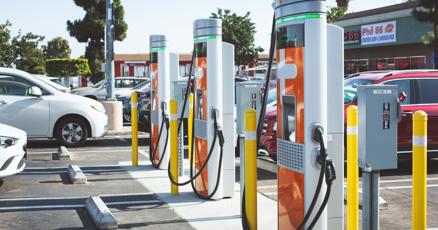Finance Minister Nirmala Sitharaman said through rooftop solarisation, one crore households will be enabled to obtain up to 300 units free electricity every month that will result in savings of Rs 15,000 to 18,000 annually for households
New Delhi:
As Elon Musk looks all set to enter the burgeoning Indian electric vehicle (EV) market with his Tesla vehicles this year, the government on Thursday said it will expand and strengthen the EV ecosystem by supporting the manufacturing and charging infrastructure.
Finance Minister Nirmala Sitharaman in her pre-election Budget, which is technically a vote on account and popularly termed an interim Budget, said the government will expand the electric vehicle ecosystem by supporting charging and manufacturing infrastructure in the country.
Sitharaman also announced a slew of measures including rooftop solarisation for the promotion of green growth and renewable energy.
She also noted that usage of electric buses for public transport networks will be encouraged.
“Our government will expand and strengthen the e-vehicle ecosystem by supporting manufacturing and charging infrastructure,” the finance minister said.
She said that through rooftop solarisation, one crore households will be enabled to obtain up to 300 units free electricity every month.
“This scheme follows the resolve of Prime Minister Narendra Modi on the historic day of Pran Prathishta of Ram Mandir in Ayodhya,” she said while tabling the Interim Budget 2024-2025 in Parliament.
She said that the scheme will result in savings of Rs 15,000 to 18,000 annually for households from free solar electricity and selling the surplus to the distribution companies.
She said that a scheme for charging electric vehicles would be launched to provide entrepreneurship opportunities for a large number of vendors for supply and installation.
“Employment opportunities for the youth with technical skills in manufacturing, installation and maintenance would emerge with the scheme,” she said.
With the aim of meeting the commitment of ‘net-zero’ by 2070,the finance minister proposed as part of the Interim Budget 2024-25:
-Viability gap funding to be provided for harnessing offshore wind energy potential for initial capacity of one giga-watt,
-Coal gasification and liquefaction capacity of 100 MT to be set up by 2030. This will also help in reducing imports of natural gas, methanol, and ammonia,
-Phased mandatory blending of Compressed Bio Gas (CBG) in Compressed Natural Gas (CNG) for transport and Piped Natural Gas (PNG) for domestic purposes to be mandated,
-Financial assistance to be provided for procurement of biomass aggregation machinery to support collection.
The industry on Thursday hailed the government’s push towards ‘green growth’ with a new scheme of bio-manufacturing and bio-foundry that will foster sustainable mobility.
“The emphasis on green energy, announcement of rooftop solarisation and the fostering of the EV ecosystem underline the government’s priority on sustainability,” said Neeraj Bansal, Co-Head & COO, India Global, KPMG in India.
Mayank Bindal, Founder and CEO, Snap E Cabs (EV Cabs), said the announcement of a new scheme for bio-manufacturing “underscores the government’s dedication to promoting green growth and environmental stewardship”.
Finance Minister also said that greater adoption of e-buses for public transport networks will be encouraged through payment security mechanisms.
“The government’s continued focus on the EV ecosystem is indeed a pragmatic step forward and will continue to help India succeed in achieving its long-term decarbonisation objectives. This is an exciting time for the country’s green industrial and economic transition,” said Manoj Nair, Head of India GDC, Fujitsu India.
In order to achieve the target of net zero carbon emissions by 2070, there has been an emphasis on a green economy with focus on expansion of solar energy, bio fuels and charging infrastructure which will raise the need for green skills, added Sumit Kumar, Chief Strategy Officer, TeamLease Degree Apprenticeship.
:

